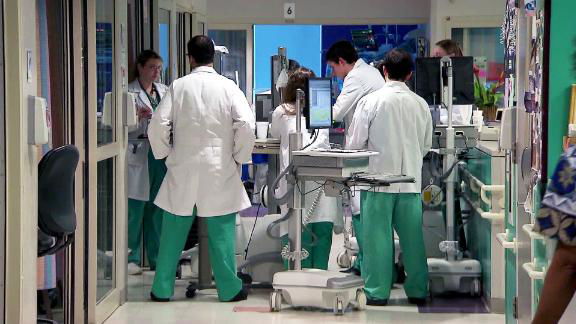We must prepare for what’s next: when we and our loved ones become ill

The next phase of the Covid-19 pandemic will be extremely challenging as people we know and love come down with the disease. Some may become gravely ill and even die. But we are not powerless against the virus. We must prepare ourselves for what’s ahead and have a plan, starting with ourselves and our own loved ones.
According to epidemiological modeling, about one in three Americans — 100 million people — could become infected by October without early and aggressive intervention. If we implement these interventions to “flatten the curve,” we could reduce the rate of spread. In fact, there are glimmers of hope that this number could be much lower as social distancing shows early signs that it might be working. This is essential to avoid overtaxing the health care system and rationing resources and attention to patients in need of intensive care. Still, even in the most conservative estimates, we could expect millions to acquire Covid-19 in the coming months.
Now is the time to prepare for what happens when Covid-19 comes to us.
About 80% of those with Covid-19 will have mild symptoms and can recover at home. If this is an adult who normally cares for themselves, they can keep themselves self-isolated during this period. Designate a room in the house for the infected person to reduce the risk of transmission. Have enough supplies — including over-the-counter cough and cold medicines, food and toiletries — to last at least two weeks. Plan ahead for who will take over that person’s other responsibilities, especially if they are normally the caregiver to young children or elderly parents.
If the ill person is a child and there are uninfected children at home, consider which parent will take care of the ill child and which one will take care of the well. Think through variations of what could happen: What if the parent who is well also falls ill? What if someone needs to go into a quarantine facility or requires in-hospital care? What if you’re a single parent — are there relatives and friends you can bring into your planning?
If someone in your household is medically vulnerable — either elderly and living with an underlying medical condition — how can you keep them from being exposed to Covid-19? If you haven’t already, take over their errands and keep them away from those more likely to be exposed to the virus. Knowing that these individuals at higher risk may need to stay away from people for long periods of time, anticipate what else they might need for their emotional well-being. Help them with setting up Skype and FaceTime. Reach out to their support networks and identify others who can be of assistance.
If you live alone, enlist a trusted friend or neighbor — perhaps someone else in a similar situation — so that if you or they become ill, you can be each other’s caregiver. Check in with each other regularly, even if it’s a daily text message to say that you’re doing fine. Provide that person with information they would need and keep it with both of you just in case: your medical history, allergies, medications you’re taking, health insurance information and key emergency contacts. Keep a “just in case” file with your passport, social security card, and birth certificate and list of bank accounts, passwords and other essentials, and let your trusted confidante know where to find it.
Prepare for what happens should you become very ill. Who will be your healthcare proxy, the person whom you trust to make decisions for you in the event that you can’t? Now is the time to have difficult discussions with that person and other loved ones about your values and the type of lifesaving measures you’d want. You may already have a will or another legal document that describe your wishes. If not, the Conversation Project can be a useful tool, along with free online forms to designate the health care proxy.
Make plans, but know that during these uncertain times, plans are subject to change. You may have someone whom you’d want to accompany you in case you got very ill, but your hospital may have rules that prohibit visitors. Give their full contact information to the health care providers treating you and have a computer and phone at the ready so you can stay connected with loved ones. Some states already have some form of travel restrictions. There may be more on the way; be ready to be separated from out-of-state loved ones for extended periods of time.
There will be many around you who are in need for society’s assistance. Some communities have gotten together volunteers to bring groceries and supplies to elderly neighbors. If you are someone with few other care responsibilities, reach out to the vulnerable around you and be part of their virtual support system. A daily check-in can be lifesaving.
And continue to do everything you can to reduce your own risk. Practice good hand and face hygiene and adhere to social distancing practices. Do not go out around others unless absolutely necessary.
We are in a time of a new normal. This time will require much from each of us, and there will be much hardship and sacrifice ahead. Social distancing does not mean social isolation; to get through this pandemic, we must prepare, come together, and help one another in the trying times ahead.
